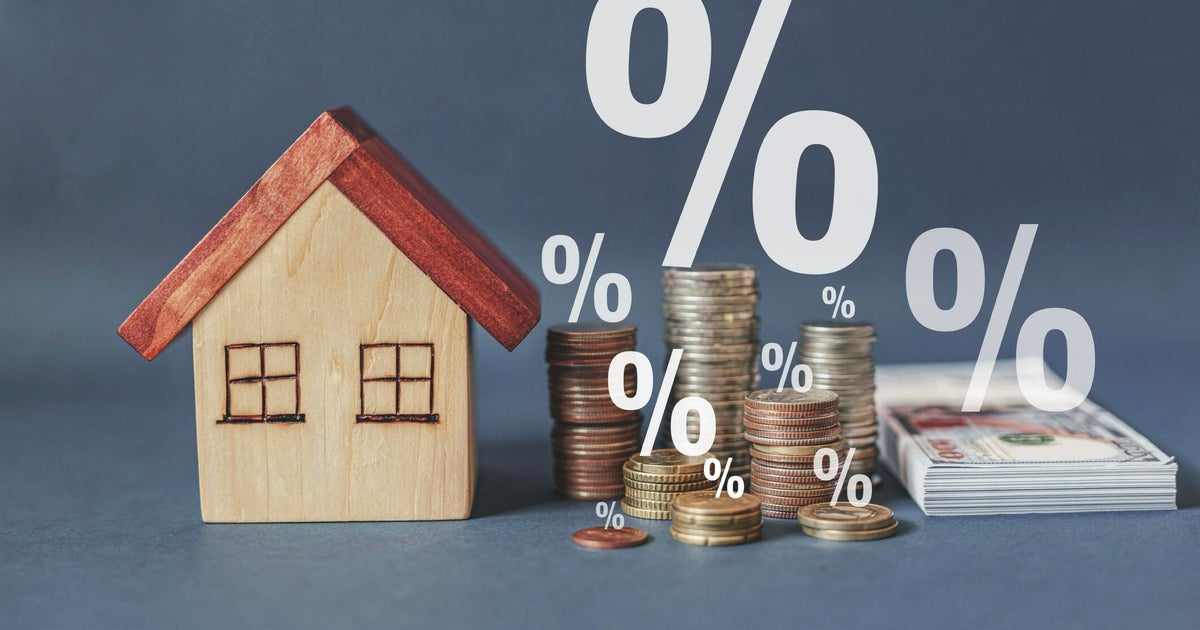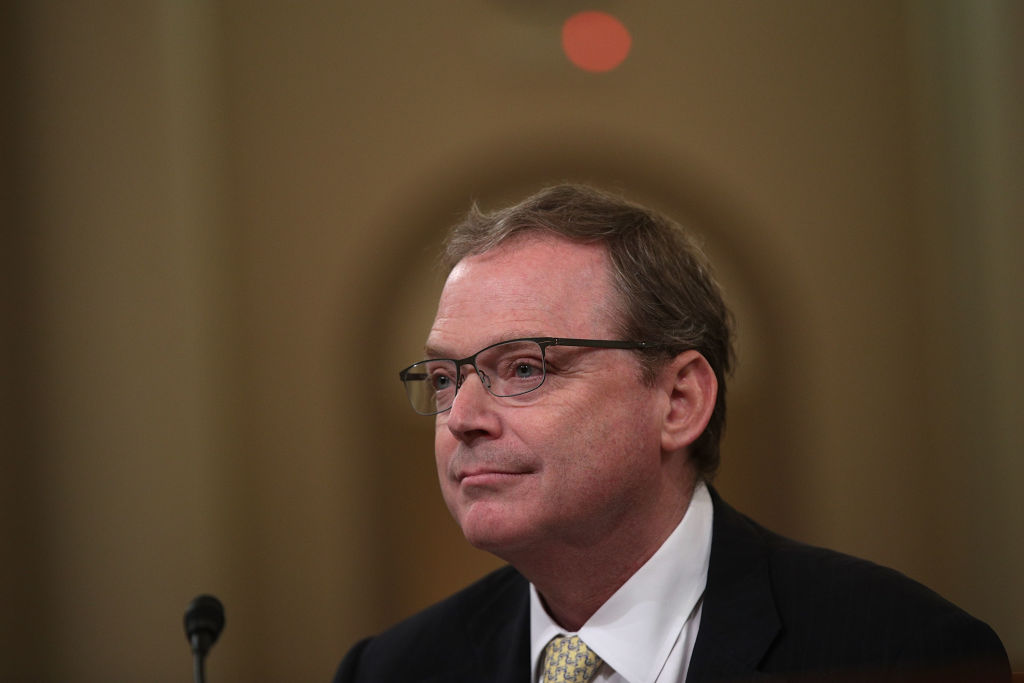Fed Chair Jerome Powell on Archegos collapse, money market funds, and the potential of a U.S. digital dollar
When Federal Reserve Chairman Jerome Powell spoke with 60 Minutes almost a year ago, COVID-19 had wreaked havoc on the U.S. economy. 22 million jobs were lost between February and April 2020. The S&P 500 had dropped nearly 34% in a month. And U.S. gross domestic product for the second quarter was in the process of dropping by a staggering 31.7%.
In those darker days earlier in the global pandemic, Powell and his advisors discussed the health of the U.S. economy and considered a worst-case scenario— an economic crisis like the Great Depression. "It was tremendous uncertainty," Powell told Scott Pelley in an interview this week. "All around the world people voluntarily shut down major economies in significant part at the same time. Simultaneously. No one's ever done that before."
A year later, Powell told 60 Minutes he's optimistic the U.S. will continue to recover jobs lost in the pandemic, and even see growth in the economy towards the end of this year. He said a low number of new COVID-19 cases and continued vaccination–along with mask wearing and continued social distancing–are critical to that recovery. "With vaccination you're seeing the resumption of what appears to be a very strong expansion," he told 60 Minutes.
This week, Scott Pelley spoke with Federal Reserve Chairman Jerome Powell about the current state of the U.S. economy and its ongoing recovery from the worst of the COVID-19 pandemic. They also discussed a wide range of other topics— from the development of a U.S. digital dollar, to money market funds, to the federal deficit.
Archegos Capital
Last month, a family office hedge fund called Archegos Capital Management went bust after it lost billions in risky financial bets with borrowed money. Some of the prime brokers for these bets were financial titans, like Goldman Sachs, Morgan Stanley, Credit Suisse and Nomura, to name a few. While some firms, like Morgan Stanley and Goldman Sachs, say they were able to offset their losses, others say they potentially lost billions. Credit Suisse reported an initial $4.7 billion loss from the Archegos meltdown. Japanese bank Nomura estimated losses of $2 billion. Archegos' investments included ViacomCBS, the parent company of CBS News.
Jerome Powell told Scott Pelley that the fallout from the Archegos collapse was the result of a "risk management breakdown" on the part of firms who provided capital through derivatives called total return swaps.
"I think what really happened is that they did understand the risks that they were running," Powell explained. "What they didn't understand was that this one investor was doing the same thing with five or six prime brokers around New York. And that when it came time to liquidate positions, it was six firms or so trying to liquidate positions."
Powell said the Fed is taking a close look at the situation to prevent it from happening again. "We're determined to understand what happened and make sure that whatever happened doesn't happen again."
U.S. Digital Dollar
Last month, China became the first major, global economic power to unveil a digital currency— a yuan that would not be printed but instead exist virtually in cyberspace.
Scott Pelley asked Jerome Powell if the U.S. was working on a U.S. digital dollar. "We are actually evaluating that," Powell said. "We feel it's our obligation to understand it. How would it work? What would the features of it be?"
Powell told 60 Minutes that the Federal Reserve is developing software and even designing the look of a U.S. digital dollar but the final decision to release it to the public will only be made once its impact is fully understood.
"We're the world's reserve currency. The dollar is so important. We need to get this right. We do not need to be the first ones to do this. We want to get it right. And that's what we're going to do," the Fed chair said.
Scott Pelley asked if the rise of cryptocurrency was the motivating factor. Powell dismissed the idea. "That's not the principal reason," he said. "There are private sector currencies, stable coins and cryptocurrencies as well. Those are not at a level or a scale that is concerning at this point."
Money Market Funds
Last year, the Federal Reserve provided an emergency lending program to money market funds after investors made a run to redeem their shares in a then-pandemic-shocked economy. For the Federal Reserve, it was a familiar scene. Money market funds were given a federal bailout in 2008, during the Great Recession.
"There's a structural issue [with money market funds]. And we know this. And it really is time to address it decisively," Jerome Powell explained. "When it happened the first time [in 2008], we did some reforms. Those reforms worked a little bit, but they didn't really do the job... when something's happened twice, it really is time to go ahead and fix it. "
Scott Pelley asked the Fed chair, "How do you fix it?" Powell answered there are "many ideas out there," and they are all being considered, but "what it boils down to is that money market funds are going to need to be resilient enough so if they have a liquidity shock like this, they can handle it."
Avoiding a Great Depression
With the pandemic roiling the global and U.S. economies last year, Jerome Powell and his advisors at the Fed discussed a Great Depression-like scenario, where the economy would struggle to recover, and unemployment would remain high for the long-term.
"We didn't think that was a likely outcome… but it was around the edges of the conversation," Powell explained. "We were very eager to do everything we could to avoid that, of course."
For their part, Powell and the Federal Reserve acted quickly—they slashed the benchmark interest rate to near-zero and bought trillions of dollars in bonds on the open market to keep credit flowing freely. And Congress, in Powell's view, provided essential support through the passage of the CARES Act.
"It would've been so much worse," Powell said. "Congress, in effect, replaced people's income. Kept them in their homes, kept them solvent, kept their lives together with what they did in the CARES Act. It was heroic."
Powell told 60 Minutes the economic recovery that followed during the summer of 2020 surprised most economic forecasters, including himself.
"Really, right through the summer, you saw very high levels of people going back to work and returning to their work lives," he said. Powell predicts that while a spike in COVID-19 cases this past winter slowed some of that progress, the U.S. economy will make a comeback as more people are vaccinated. "With vaccination you're seeing the resumption of what appears to be a very strong expansion."
COVID-19 Relief, Inflation and the Federal Budget
In his conversation with 60 Minutes' Pelley, Powell was eager to point out that the U.S.'s economic recovery is almost directly tied to stopping the spread of COVID-19. If new cases rise, as reopening occurs in parts of the country, the economy could be exposed to further risk.
"Many parts of the country, as you know, are reopening with enthusiasm. And time is going to tell whether that was premature," he explained. Powell said recent rises in COVID-19 cases, while lower than they were last winter, remain a concern. "They're at much lower levels than they were in the winter. Vaccination is helping, but that's, I think, the main risk to the speed of the recovery."
Scott Pelley asked if spending on COVID-19 relief, infrastructure and other social programs could trigger inflation. Powell said, while he's "reluctant to offer advice to Congress," he does not see any immediate risk of inflation from federal spending. "We've been through times with very large fiscal deficits recently. For example, right after the global financial crisis," he explained. "If you go back to the 1960s and '70s, fiscal policy was a big driver of inflation… but you don't really see that now."
However, he said, the U.S. budget will eventually need to get back on track. "We can service the debt we're issuing…but we'll have to return to a sustainable path," he explained. "The time to do that is when the economy is strong, and we're fully recovered, and people are working, and taxes are rolling in. The time to do that is not now."
The videos above were produced by Will Croxton and Jacquelyn DiNick. They were edited by Will Croxton.



